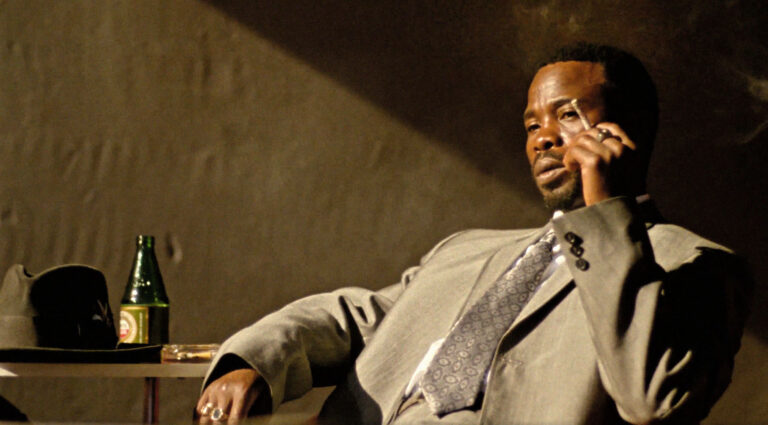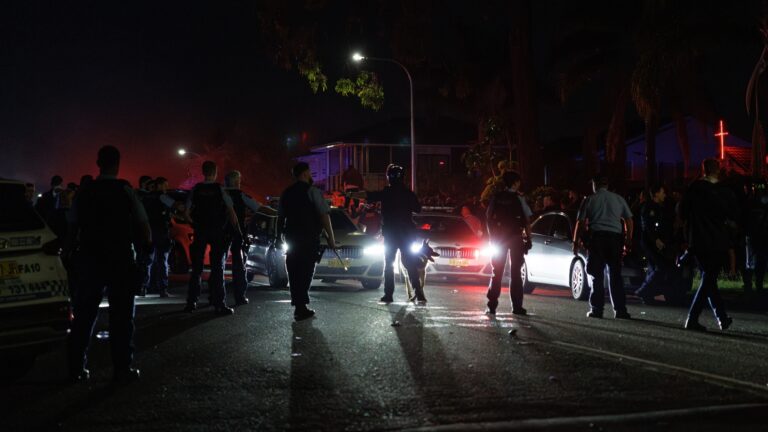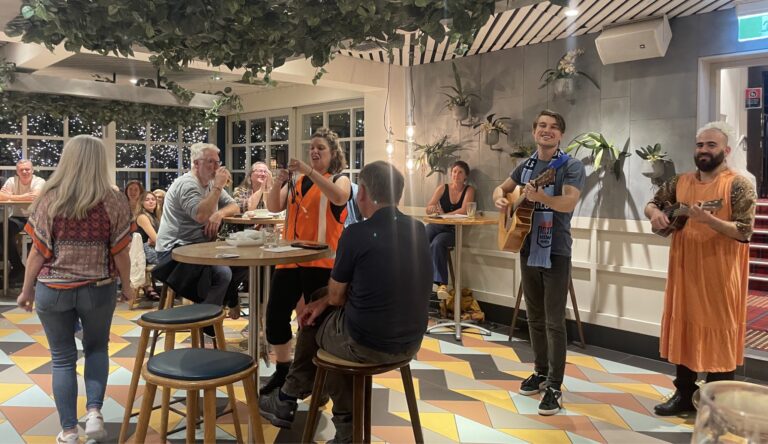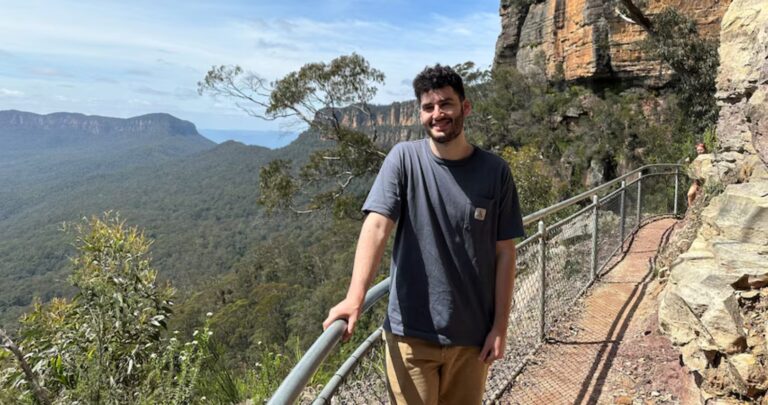
“Dob in a Dealer” Fizzles
BY JOHN MOYLE
Last week, the final leg of the Crime Stoppers’ travelling roadshow “Dob in a Drug Dealer” wheeled into Kings Cross.
In attendance at Fitzroy Gardens were two senior Crime Stoppers executives, senior police and around 10 junior police dragooned from the KX Police Station, all watching over a table groaning with free high carb delicacies and coffee.
The spectators amounted to three local busybodies and four backpackers, who scoffed the muffins, grabbed a coffee and were last seen heading for Darlinghurst Road.
“The new ‘Dob in a Dealer’ campaign by Crime Stoppers and NSW Police Force launched on 4 January 2019 is aimed at stopping Australia’s supply of illicit drugs including ice, cocaine, MDMA, heroin and cannabis,” the Crime Stoppers media release said.
“Police and Crime Stoppers sent out media alerts, and we did not expect as much of a turn out as we had already hosted several events in Sydney, including Bondi Junction, Central Station, Surry Hills and Redfern,” spokesperson, Crime Stoppers said.
Failed war on drugs
“I am aware of the campaign and that around $1 million in finding has been poured into it,” Saba, lawyer, Sydney Criminal Lawyers said.
“The annual cost of having a 10-bed rehabilitation centre is $1.3 million and we would promote rehabilitation in these matters.”
“That’s $1 million added to the billions already spent on the failed war on drugs,” said Cate Faehrmann, Greens MLC NSW and spokesperson on drug law reform.
Uniting has a vested interested in the area, being the operators of the Medically Supervised Injecting Centre that has a record of harm minimisation for over 8,000 overdoses, zero deaths and 13,000 referrals to health, drug treatment and social welfare services over the past 18 years.
“We believe that drug use should be treated as a health issue, not as a criminal justice one, and we would like increased investment in evidence-based interventions such as treatment and harm reduction,” spokesperson, Uniting said.
The event did not go unnoticed at the Kings Cross Community Centre, which was concurrently running a jumble sale.
“People were coming into the Centre, saying how appalling it was,” Rosemary, jumble stall attendee said.
“My own view is that it was a PR exercise and putting this sort of money into the campaign is just window dressing for a political smokescreen.”
Warren Fahey AM, historian and performer, questioned the effectiveness of a dob in campaign when he said “Part of the cultural history of Kings Cross was to mind your own business, keep your nose out of other people’s business, live and let live, and never, ever, become a dobber”.
Just who the campaign was aimed at and what results were expected is still to be realised.
Without disclosing the benchmark, Crime Stoppers said, “The last time we did this we had a 134 per cent increase in information on drug-related crime.”
“While drugs can cause harm, almost all evidence-based research indicates that criminalisation exacerbates harm, forcing drug supply underground and leading to toxic and harmful drugs being supplied by dealers who are effectively rewarded by higher prices due to the scarcity of drugs,” Dr Eugene Schofield-Georgeson, Convenor Criminal Justice Action, NSW Council for Civil Liberties said.
Cate Faehrmann also questions the value of the campaign in the light of drugs now being a normalised part of people’s lives.
“A lot of people are taking drugs and it a part of their normal recreational experience.
We have seen Gladys Berijiklean’s “say no” message spectacularly fail in recent months and it is time for governments to pull their heads out of the sand, look at the international examples and get real about the nature and the extent of illicit drug use.”
What do local police know
There are also questions about what the local police know and how they deal with this knowledge.
Long-time local resident Brian lives in public housing in Kings Cross and says the police already know the dealers.
“I live in a building of 36 units and there are at least five units occupied by drug dealers selling everything from pot to ice.
“The police have known this for years and they have done nothing.”
Cate Faehrmann added that even some police are getting fed up with marginalising young people attending music festivals.
“I’m hearing from police members who are saying to me how uncomfortable they feel having to stand in massive lines at music festivals and aggressively police young people who are now afraid of approaching police.
“We have worked for decades to improve relations between the community and police and now we are getting into a dangerous era.”
After 50 years of illicit drugs being an integral part of the community, we deserve a better dialogue that the one we are currently having.









